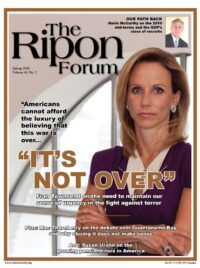 Our nation has struggled with an economic crisis of historic proportions since December 2007. The pain has been wide and deep. Americans are suffering from job losses, home foreclosures, and bankruptcies that have caused both consumer demand and new investment to plummet.
Our nation has struggled with an economic crisis of historic proportions since December 2007. The pain has been wide and deep. Americans are suffering from job losses, home foreclosures, and bankruptcies that have caused both consumer demand and new investment to plummet.
This same crisis forced China to shutter hundreds of manufacturing and assembly plants which left some 20 million Chinese unemployed. Yet China appears to have come through the global economic turmoil with relative ease. Last year, China grew by close to 9 percent, maintaining its position as the world’s fastest growing major economy. This year, China is likely to replace Japan as the world’s second largest economy and its largest trading nation.
The severity of the financial news at home and the speed with which China has recovered have intensified the fears of many Americans that their future economic opportunities will be eroded as 1.3 billion Chinese become ever more active in the global market place.
The severity of the financial news at home and the speed with which China has recovered have intensified the fears of many Americans that their future economic opportunities will be eroded as 1.3 billion Chinese become ever more active in the global market place.
Economic hardship inevitably stokes economic nationalism. Protectionism has grown in both countries. According to a list compiled by the U.S.-China Business Council, our 111th Congress through March 1 of this year has introduced more than 100 bills that affect China – most in a negative way – ranging from efforts to amend the 1930 Tariff Act to making exchange rate misalignment by a foreign nation actionable under our countervailing and antidumping laws to inserting Buy American provisions into a wide range of legislative measures.
China’s government for its part has responded with trade and investment restrictions of its own, ranging from its disapproval of efforts of a major U.S. company to acquire a Chinese firm to requiring foreign investors to share technology in order to participate in China’s government procurement market.
As headlines in our respective newspapers attest, bilateral trade disputes have multiplied. The United States has taken action to restrict the import of Chinese tires, steel pipe, magazine quality paper, and salts, whereas China has moved to restrict U.S. movies and books, poultry, auto parts, and industrial acids.
These trade frictions – coupled with the recent bilateral tensions over U.S. sales of defensive weapons to Taiwan, President Obama’s meeting with the Dalai Lama, and our differing assessment of risk connected to Iran’s nuclear ambitions – have added to American’s concerns about the strength and solidarity of the Sino-American relationship.
Increasingly, the question is posed: can the world’s largest economy work constructively with the world’s fastest growing economy to enhance the future prosperity and security of both? Or have our increasingly competitive economies, coupled with differences in our governance and cultures, become too great to enable us to harness our respective strengths to deal effectively with today’s challenges?
I believe that we can, should, and must work constructively together, and by doing so we can build habits of cooperation that will help us to deal effectively with new challenges as they arise.
My view is that the economic prospects of both countries — and indeed the prospects for growth of the global economy — are dependent upon a strong and vibrant economic relationship between the United States and China.
My view is that the economic prospects of both countries — and indeed the prospects for growth of the global economy — are dependent upon a strong and vibrant economic relationship between the United States and China.
Trade data shows unequivocally that in spite of our problems, the Chinese market offers Americans real opportunity. Since 2001, when China became a member of the World Trade Organization, its markets have become increasingly open and our business opportunities in China have soared.
Between 2000 and 2008, our sales to China have increased more than 340 percent, a growth that is more than four times faster than our sales over the same period of time to the rest of the world. That growth in sales was felt across America. Over that eight year period, virtually every state in the union saw near triple digit increases in its exports to China.
Significantly last year, in the midst of the Great Recession, according to U.S. Department of Commerce statistics, our exports to China held steady while our exports to the rest of the world fell by nearly 20 percent.
China remains our third largest export market behind Canada and Mexico, and, importantly, it is our fastest growing export market. Last year, computers and electronics, crop production, chemicals, and transportation equipment comprised our top four exports to China. These are all sectors that generate good jobs.
China remains our third largest export market behind Canada and Mexico, and, importantly, it is our fastest growing export market.
While our purchases from China last year declined by roughly12 percent, our imports from the rest of the world fell by more than twice that amount. In short we have a strong and growing commercial relationship with China, and it advances both our economic and foreign policy interests for us to build upon that relationship.
China is likely to be an engine of growth in the decade going forward. It represents a huge market with an expanding middle class. In his 2010 State of the Union address, President Obama announced his goal of doubling U.S. exports over the next 5 years and, in doing so, to create 2 million jobs. That is an accomplishment that has rarely, if ever, occurred. But it certainly cannot occur without access to China’s markets.
We are more likely to accomplish that goal by keeping our bilateral markets open while working with China to further open global markets. That would enhance the growth of our domestic economies while contributing to the expansion and stability of the global economy. However, that is not happening.
At each of the three G-20 meetings, the assembled leaders pledged not to erect barriers to imports, not to violate WTO rules, and not to impose export restrictions. Yet the report published this past September by Global Trade alert documents that G-20 members have put in place over 120 blatantly discriminatory measures with more in the pipeline. The United States and China were among the offenders.
While protectionism will not be stopped with pledges, it could be stopped if our two governments took the lead at the upcoming G-20 meeting to press for a real commitment to carry out the leaders’ promises to keep their markets open and themselves set an example.
In addition, the United States and China need to work together to push the Doha Round to a successful conclusion and, in so doing, create new and exciting opportunities for American and Chinese entrepreneurs, while giving the global economy a real boost.
According to studies conducted at the Peterson Institute for International Economics, tariff cuts for agricultural and industrial goods, reductions in farm subsidies, and market opening proposals for services now under discussion could boost world output between $300 and $700 billion a year. We need that growth now.
Open markets make a difference. America’s GDP would be more than 20 percent smaller today had it not led in opening global markets in the years following World War II…
Open markets make a difference. America’s GDP would be more than 20 percent smaller today had it not led in opening global markets in the years following World War II, and it is thanks to open markets that China was able to lift hundreds of millions of its people out of poverty.
For all the challenges that the United States and China face today, it is overwhelmingly in our respective national interests to maintain a close, candid, constructive, and collaborative relationship.
As President Obama has said: “The relationship between the United States and China will shape the 21st century.”
Carla A. Hills is the Chair and CEO of Hills & Company, International Consultants. She served as U.S. Trade Representative from 1989 to 1993.




